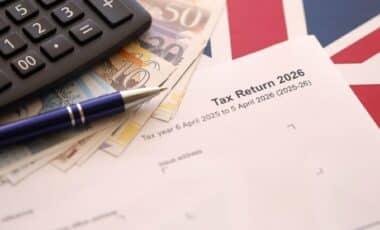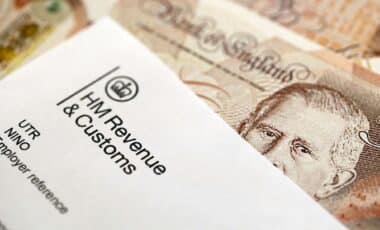Rising interest rates and unchanged tax thresholds have quietly drawn thousands of UK savers into unexpected tax obligations. As banks report interest earned to the authorities, many individuals now face reduced tax-free allowances and automatic deductions from their earnings—often without prior warning.
In response, HMRC has issued new tax codes to individuals whose savings interest exceeds the Personal Savings Allowance (PSA). This development signals a shift in how savings income is taxed and places renewed emphasis on individual responsibility to ensure compliance with HMRC’s evolving processes.
Tax Code Adjustments Reflect Uncollected Tax on Interest
According to HMRC, individuals with savings interest exceeding the PSA are having their tax-free personal allowance reduced through PAYE adjustments, in line with reported interest data from banks and building societies.
Rather than requiring formal self-assessment filings, the tax authority has opted to recoup underpaid tax automatically, amending codes before the new financial year.
Steve Webb, former pensions minister and partner at LCP, highlighted the lack of notice many taxpayers face:
“HMRC will normally collect underpaid tax through a change to your tax code, so it would be a nasty shock if you only find out at the end of March about a change that will happen within the next week.”
His comments reflect wider criticism over the communication timeline, with some letters arriving just days before deductions begin.
Data matching challenges have complicated the process. According to Senga Prior, President of the Association of Taxation Technicians (ATT), HMRC’s systems fail to correctly link approximately 20% of accounts to individual taxpayers.
With over 130 million accounts processed annually, this results in significant tax liabilities potentially slipping through the system—unless the individual proactively contacts HMRC.
Responsibility Shifting Back to the Individual
While HMRC had initially assured the public it would handle taxation automatically based on interest reports, recent guidance updates mark a shift in approach.
From 31 March 2025, anyone who has not received a formal notice or code adjustment must contact HMRC directly to confirm whether tax is due—regardless of whether they are enrolled in self-assessment.
According to Laura Suter, director of personal finance at AJ Bell, this move may cause “unexpected tax bills” for those unaware of breaching the PSA, especially given limited timeframes to respond. The ATT has echoed this concern, warning that penalties may apply if savers fail to report untaxed interest income within six months after the tax year ends.









